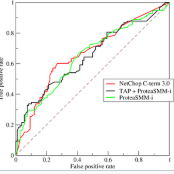Outlier ensemble methods have shown outstanding performance on the discovery of instances that are significantly different from the majority of the data. However, without the awareness of fairness, their applicability in the ethical scenarios, such as fraud detection and judiciary judgement system, could be degraded. In this paper, we propose to reduce the bias of the outlier ensemble results through a fairness-aware ensemble framework. Due to the lack of ground truth in the outlier detection task, the key challenge is how to mitigate the degradation in the detection performance with the improvement of fairness. To address this challenge, we define a distance measure based on the output of conventional outlier ensemble techniques to estimate the possible cost associated with detection performance degradation. Meanwhile, we propose a post-processing framework to tune the original ensemble results through a stacking process so that we can achieve a trade off between fairness and detection performance. Detection performance is measured by the area under ROC curve (AUC) while fairness is measured at both group and individual level. Experiments on eight public datasets are conducted. Results demonstrate the effectiveness of the proposed framework in improving fairness of outlier ensemble results. We also analyze the trade-off between AUC and fairness.
翻译:在发现与大多数数据大相径庭的事例方面,超越共同因素的方法显示在发现发现与大多数数据大相径庭的事例方面表现突出。然而,在缺乏公平意识的情况下,这些方法在道德情景(如欺诈检测和司法判决系统)中的适用性可能会降低。在本文件中,我们提议通过公平意识组合框架,减少超出共同因素结果的偏差。由于外部检测任务缺乏地面真相,关键的挑战是如何减轻检测性能的退化,从而改善公平性。为了应对这一挑战,我们根据常规异端混合技术的产出,确定了远程措施,以估计与检测性能退化相关的可能成本。与此同时,我们提议了一个后处理框架,通过堆叠过程调整原始共同结果,以便我们能够在公平和检测性能之间实现交易。检测性能按ROC曲线(AUC)下的区域进行测量,同时在群体和个人一级衡量公平性。对八个公共数据集进行了实验。结果表明拟议框架在提高外部交易的公正性方面的有效性。我们还分析了AUC的公平性。




